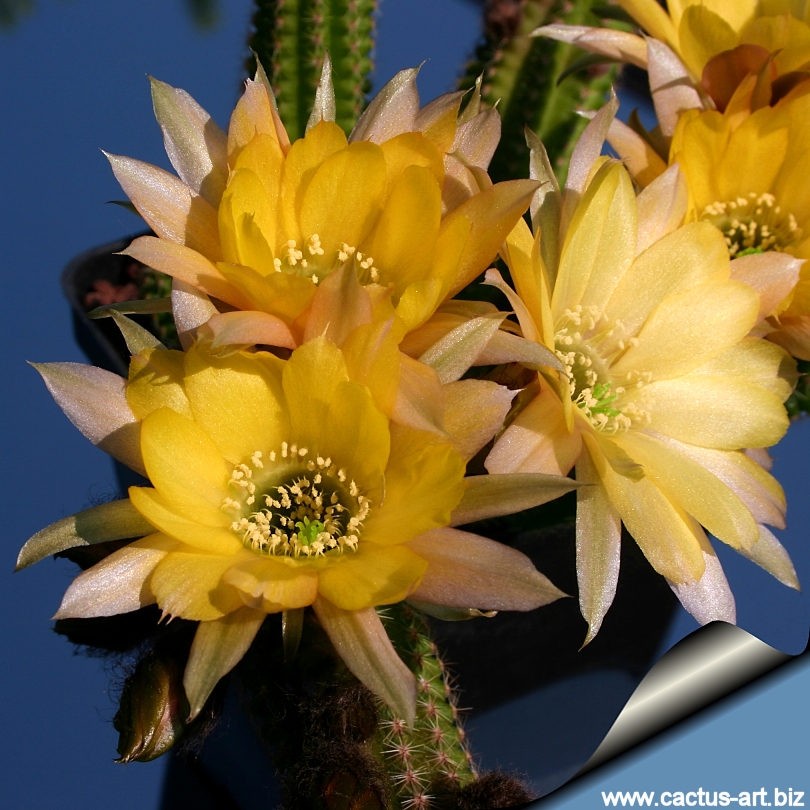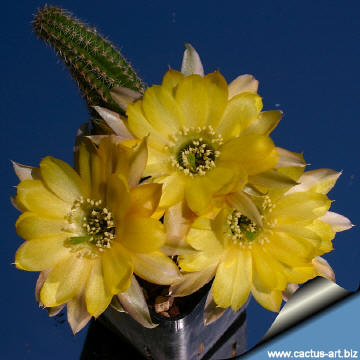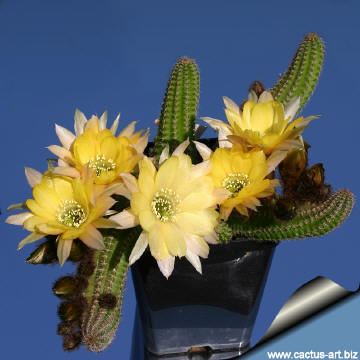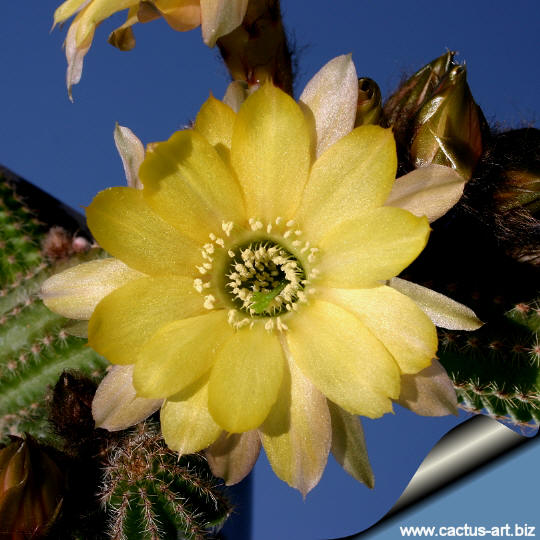|
|
|

The flowers are yellow with a delicate green stigma.
|
|
CHAMAELOBIVIA HYBRIDS:
Chamaecereus silvestrii (now renamed Echinopsis chamaecereus)
is an old species, widely hybridized with various Lobivias, hence
Chamaelobivia (intergeneric hybrid of Chamaecereus and
Lobivia), but since both of those are now reclassified as
Echinopsis, that makes this an Echinopsis hybrid.
Chamaelobivia are very popular hybrids that develop really amazing
flowers of different colours on the original "peanut" body, and many of
these hybrids have cultivar names. These plants
soon form spectacular
clumps with 20-30 (or more) flowers at a time, and are quite a sight.
They are often thicker, stronger, larger growing than C. sylvestrii,
and tend not to have the typical peanut-shaped offsets. The offsets
produced are more strongly attached to the main stems.
Most of these hybrids can grow outside all year, and can
take a lot of sun. Hardy from -4° to -12°
C depending on clone. |
 |
 |
|
Cultivation: This is an easily grown cactus, suited to hanging
baskets as well as pots. Grow in well-drained soil in a sunny spot. This
Echinopsis needs a period of cool rest in winter to produce flowers
abundantly. It flowers freely indoors if conditions suit it. The plant
survives outside without protection in winter (cold hardy to -8° ) but
is then somewhat prone to rot, too.
Needs moderate water in summer, none in winter.
Watch for infestations of
mealybug, scale insects and spider mite.
|
|
Advertising
|
|
|
|
Family:
Cactaceae (Cactus
Family)
Scientific name:
Chamaelobivia cv. YELLOW BIRD
Hybrid
Chamaecereus sylvestris x Lobivia sp.
Origin:
Garden origin (Nursery
produced cultivar)
Conservation status: Listed in
CITES appendix 2.

Bright yellow, small clustered stems
|
|
|
|

Propagation: Easy to propagate from offsets. Small joints are
produced in quantities (peanuts) These offsets can be detached and
planted immediately, as they root easily with no assistance when they
touch the ground. Just let them lay on the soil and you have a new
start.

 |
|